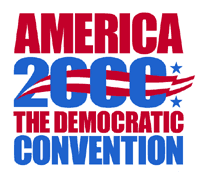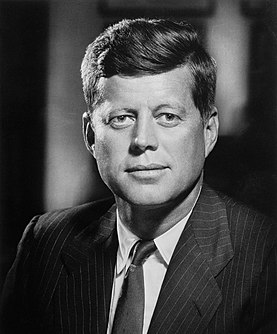Related Research Articles

The 1984 United States presidential election was the 50th quadrennial presidential election. It was held on Tuesday, November 6, 1984. Incumbent Republican President Ronald Reagan defeated Democratic former Vice President Walter Mondale, in a landslide, winning 525 electoral votes and 58.8 percent of the popular vote. No other candidate in United States history has matched Reagan's electoral vote total in a single election. This is the most recent US presidential election in which a candidate received over 500 electoral votes.

Samuel William Yorty was an American politician from Los Angeles, California. He served as a member of the United States House of Representatives and the California State Assembly, but he is most remembered for his turbulent three terms as the 37th Mayor of Los Angeles from 1961 to 1973. Though Yorty spent his political career as a Democrat, he became a Republican in 1980.

Jesse Marvin Unruh, also known as Big Daddy Unruh, was an American politician who served as speaker of the California State Assembly and as the California State Treasurer.

Alan MacGregor Cranston was an American politician and journalist who served as a United States Senator from California from 1969 to 1993, and as a President of the World Federalist Association from 1949 to 1952.

The 2000 Democratic National Convention was a quadrennial presidential nominating convention for the Democratic Party. The convention nominated Vice President Al Gore for president and Senator Joe Lieberman from Connecticut for vice president. The convention was held at the Staples Center in Los Angeles, California from August 14 to August 17, 2000. Gore accepted the presidential nomination on August 17, the final night of the convention.

Robert M. "Bob" Shrum is the Director of the Center for the Political Future and the Carmen H. and Louis Warschaw Chair in Practical Politics at the University of Southern California, where he is a Professor of the Practice of Political Science in the Dornsife College of Letters, Arts and Sciences. He is a former American political consultant, who has worked on numerous Democratic campaigns, including as senior advisor to the Kerry-Edwards campaign in 2004 and to the Gore-Lieberman campaign in 2000. Shrum wrote the famous speech Ted Kennedy gave at the 1980 Democratic National Convention conceding to and supporting President Jimmy Carter. He has been described as "the most sought-after consultant in the Democratic Party." Shrum served as speechwriter to New York Mayor John V. Lindsay from 1970 to 1971, speechwriter to Senator George McGovern's 1972 Presidential campaign and speechwriter and press secretary to Senator Edward M. Kennedy from 1980 to 1984 and political consultant until 2009.

The 1964 United States Senate elections coincided with the election of President Lyndon B. Johnson by an overwhelming majority, to a full term. His Democratic Party picked up a net two seats from the Republicans. As of 2022, this was the last time either party has had a two-thirds majority in the Senate, which would have hypothetically allowed the Senate Democrats to override a veto, propose constitutional amendments, convict and expel certain officials, or invoke cloture without any votes from Senate Republicans. In practice, however, internal divisions effectively prevented the Democrats from doing so. The Senate election coincided with Democratic gains in the House in the same year.

The California Democratic Party is the affiliate of the Democratic Party in the U.S. state of California. It is headquartered in Sacramento.
The Alaska Democratic Party is the affiliate of the Democratic Party in Alaska, headquartered in Anchorage.

From February 20 to June 12, 1984, voters of the Democratic Party chose its nominee for president in the 1984 United States presidential election. Former Vice President Walter Mondale was selected as the nominee through a series of primary elections and caucuses culminating in the 1984 Democratic National Convention held from July 16 to July 19, 1984, in San Francisco, California.

From January 27 to June 8, 1976, voters of the Democratic Party chose its nominee for president in the 1976 United States presidential election. Former Georgia governor Jimmy Carter was selected as the nominee through a series of primary elections and caucuses culminating in the 1976 Democratic National Convention held from July 12 to July 15, 1976, in New York City.

From March 8 to June 7, 1960, voters of the Democratic Party elected some of the delegates to the 1960 Democratic National Convention. The presidential primaries were inconclusive, as several of the leading contenders did not enter them, but U.S. Senator John F. Kennedy emerged as the strongest candidate and secured the nomination at the Convention, held from July 11 to 15 in Los Angeles.
George H. McLain was a United States Democratic politician from California and an influential pension promoter from the 1930s through the early 1950s.
In American politics, cross-filing occurs when a candidate runs in the primary election of not only their own party, but also that of one or more other parties, generally in the hope of reducing or eliminating their competition at the general election. It was in effect in California from 1913 to 1959, when it was abolished, and has been used in other states, most significantly in New York and New Hampshire, where it is still in effect.

Timothy R. Ashe is an American politician who ran for a wide range of political offices in Vermont and served as a Democrat/Progressive in the Vermont State Senate from Chittenden County from 2009 to 2021 and as President pro tempore of the Vermont Senate from 2017 until 2021.
George Miller Jr. was an American Democratic politician who served as a California State Assemblyman from 1947 to 1949 and a California State Senator from 1949 to 1969. He was a leader of the liberal wing of the California Democratic Party in the early 1950s when the Republican Party dominated state government. Miller was the father of U.S. Representative George Miller III.

The 2018 Illinois gubernatorial election took place on November 6, 2018, to elect the Governor of Illinois, concurrently with the 2018 Illinois general election and other midterm elections. Incumbent Republican Governor Bruce Rauner ran for re-election to a second term in office, but was defeated by Democratic nominee J. B. Pritzker.

The 2018 California lieutenant gubernatorial election was held on November 6, 2018, to elect the Lieutenant Governor of California. Incumbent Democratic Lieutenant Governor Gavin Newsom was ineligible to run for reelection due to term limits and ran for Governor of California instead. Democrats Eleni Kounalakis and Ed Hernandez faced each other in the general election, as no Republican finished in the top two positions of the nonpartisan blanket primary that was held on June 5, 2018.

The 1960 United States presidential election in Iowa took place on November 8, 1960, as part of the 1960 United States presidential election. Voters chose ten representatives, or electors, to the Electoral College, who voted for president and vice president.
References
- ↑ The father of current Congressman George Miller III; sometimes confused with the late Congressman George P. Miller
- ↑ CDC official website
- ↑ Quoted without citation on the Democracy for America website
- ↑ Eleanor Fowle, "Cranston, The Senator from California" (San Rafael, California, 1980)